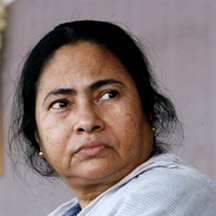MUMBAI, (Reuters) – India has put a plan to open up its retail industry to foreign supermarkets on hold, a senior government source said yesterday, an embarrassing turnaround for a beleaguered government fighting to retain the support of key allies.

The move to allow global giants such as Wal-Mart into India’s $450 billion retail market, the first major economic reform since Prime Minister Manmohan Singh’s graft-riddled term began in 2009, has been met with fierce opposition from some who say it will destroy the livelihood of millions of small traders.
“This is a pause,” the government source with knowledge of the matter told Reuters. “Do not see it as a rollback, as if the government is giving up on it. This is just a small pause.”
The idea appears to give the under-fire ruling party time to gain the support of its key coalition allies.
“Parliament needs to get going again. There is so much that the government needs to do,” the source added, a day after the government’s biggest ally said the policy was being sidelined due to disagreement within the ruling coalition.
Any postponement or watering down of the policy would be a huge embarrassment for Singh’s government, which has failed to pass any big-ticket economic reforms as it struggles with allegations of widespread graft.
Singh has lost much of his credibility as the reformer who turned India from near-bankruptcy 20 years ago to an economic wonder. Foreign investors are seen spooked by a growing sense of policy paralysis that Asia’s third-largest economy can ill-afford as once-booming GDP growth begins to temper.
The government was likely to release an official statement regarding the issue today, said the source, who was not permitted to speak to the media. Allowing foreign direct investment into a retail industry dominated by small shops was trumpeted by Congress as a policy that would help ease stubbornly high inflation, improve supply-chain infrastructure, and create millions of jobs.
The main opposition Bharatiya Janata Party has led protests against the reform in parliament that have paralysed both chambers every day since the 21-day winter session opened last week.
“JUST INDIAN
POLITICS”
Mamata Banerjee, the firebrand leader of the Congress party’s biggest ally and a opponent of the policy, said on Saturday the government had told her the plans would be put on hold until a consensus had been reached.
Her West Bengal-based Trinamool Congress brings 19 votes to Singh’s coalition, which relies on allies to hold a wafer-thin majority in New Delhi.
Ruling parties in India’s colourful democracy are often forced to rely on fickle allies, who can use the importance of their votes in the national parliament to negotiate concessions or support for the regions or states they represent.
“This is just Indian politics,” the source said.


